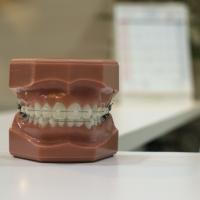Home > Blog > Cosmetic Surgery
6 Tips to Choose a Doctor for your cosmetic surgery
Much of the advice for choosing a cosmetic surgeon, whether it’s at home or overseas, is the same – research, research, research. The more you know, the better placed you are to understand what results to expect from the surgery, as well as recovery times and potential risks.
All surgical procedures carry a risk no matter where you have it done. The human body is unique, and no two people will have the same experience as we all feel things differently and our bodies don’t necessarily heal in the same way. Bearing in mind there is always a small risk which not even the best surgeons would foresee happening, there are some tips you can follow to ensure your risks are kept to the absolute minimum when choosing your doctor.
1. What are your doctor’s qualifications and experience?
Although medical training is similar throughout the world, plastic, cosmetic or esthetic surgery is not recognized as a specialty in all countries. This means that surgeons in some countries do not have to undertake any specialist training to practice cosmetic surgery and may not have the training, qualifications or skills you would expect.
Cosmetic surgery is said to be a combination of art and science, and a good cosmetic surgeon should have an eye for esthetics – especially when it comes down to facial procedures. Check your surgeon is a certificated plastic surgeon with a national or international plastic surgery board, such as the International Society of Aesthetic Plastic Surgeons (ISAPS) who have members listed from 94 countries.
2. Where will the surgery be carried out?
Regulations vary from country to country and you want to be sure your surgery is carried out in a surgical setting that adheres to strict international standards on patient health and safety. A hospital setting may be better than a clinic setting, although it’s always worth checking for accredited facilities, such as Joint Commission International, or other internationally-recognized accreditations, so you can be sure the facilities meet a high standard.
3. Find out as much as you can about your cosmetic procedure.
This is particularly true of any medical procedure but even more so if you’re thinking about cosmetic or plastic surgery. There are many different procedures that you may not even be aware of. While at one time a facelift was pretty-much the only surgical treatment for facial wrinkles, nowadays there are a myriad of procedures for different types of wrinkles and for different areas of the face. If it’s only the eye area that is bothering you then a blepharoplasty or forehead lift may be better for you than a full facelift.
Prepare yourself so you know exactly what questions to ask when you choose your surgeon.
4. Check your surgeon’s references
It’s always worth asking if you can contact previous patients and finding out how they’ve got on. Obviously, make sure they have had the same procedure as you – it’s no good speaking to someone who has had a butt lift if you’re going for a breast augmentation. Any good surgeon will be happy to do this, and remember you can always search online, but bear in mind that the information may not always be reliable.
5. Don’t be afraid to ask questions
If you’ve done your research properly you will no doubt have many questions. Your surgeon should take the time to explain things fully and in a way you can understand. You should feel comfortable and at ease with them. Don’t be afraid to listen to your heart. Do you feel you can trust them? If you have any nagging doubts or you don’t feel confident with what your doctor has told you then don’t be afraid to walk away. It’s your body and your choice so don’t feel pressured into anything.
6. Aftercare
This is an important part of the process. Make sure you are fully aware of what’s involved in the aftercare process. Where will you stay during your recovery? How long is the recovery process? If you’ve traveled overseas when is it safe to fly? What are the possible complications? If there are any complications how will they be handled and who will pay for any revision procedures?
Cosmetic surgery is a huge undertaking, and you should consider every aspect of the procedure when choosing your doctor. Follow these simple tips and make sure you’ve planned for every eventuality so you’ll get a positive outcome from your surgery.
More to Read:
Previous Posts:






